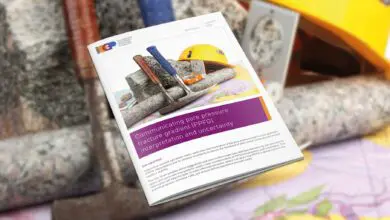
IOGP directors discourse at Offshore Europe
Decades after the North Sea’s oil and gas fields were predicted to run dry, they remain an important source of energy. Similarly, the Society of Petroleum Engineers’ Offshore Europe Conference and Exhibition, is still going strong, at a new venue and with new focus on issues such as net zero carbon emissions, artificial intelligence and digital transition.
This year Offshore Europe attracted 38,000 visitors, 950 exhibitors and a line-up of speakers that included four senior IOGP figures: Executive Director Gordon Ballard, Environment Director Wendy Brown, Safety Director Olav Skar and JIP33 Project Director Adri Postema.
Gordon was there to chair a panel discussion on standardisation in general and procurement in particular. In contrast to greater efficiencies and economies elsewhere, in recent years 75% of major oil and gas projects were exceeding their budgets by half, Gordon pointed out. “Add typical scheduling overruns of 40% and you’re in serious trouble,” he said.
“That’s why IOGP took up the World Economic Forum’s challenge in 2016 to bring our industry’s costs down through standardised procurement.” Previously, he pointed out, an IOGP study had found among participating companies, there was an average of 466 individual equipment specifications. Each typically ran to 28 pages. “That’s 13,048 pages of specs – who has the time to read and absorb all of that? And why bother?” he asked.
Instead, he said, the advantages of standardising procurement specifications in the upstream industry include cuts of 20% of capex spending equipment, higher quality equipment with fewer fabrication defects and safety benefits that accrue through familiarity with equipment across a range of locations.
Quoting Mckinsey, Gordon added that ‘standardisation is a key lever we can pull as an industry to structurally reduce large project lifecycle costs.”
Joining Olav and Adri on Gordon’s panel were Steve Cartwright, Jaguar Land Rover’s Global head of Standards and Controls and Chris Garside, BAE Systems’ International Capability & Assurance Engineering Director.
In a parallel keynote session on ‘transformative technologies to lower carbon footprint’, Wendy was a featured speaker, describing how eliminating methane leaks and reducing flaring are some of the most cost effective ways to provide drastic reductions to the emissions intensity of oil and gas supply.
- Julien Perez of OGCI, who focused on the climate change agenda and reported on his organisation’s progress
- Sam Gomersall of Pale Blue Dot Energy, who advocated a “massive step change in carbon capture, utilisation and storage (CCUS)”
- Dr Owain Tucker of Shell who provided real life examples from his company’s efforts in carbon footprint reduction
- Anna Korolko of Equinor who described progress at Equinor and also looked at hydrogen and CCUS in a holistic context
Wendy was also the subject of a profile in Upstream’s “Head to Head” column on 13 September, based on an interview she gave during Offshore Europe. It described how she is ‘”working to raise the bar on emissions and energy efficiency.”




